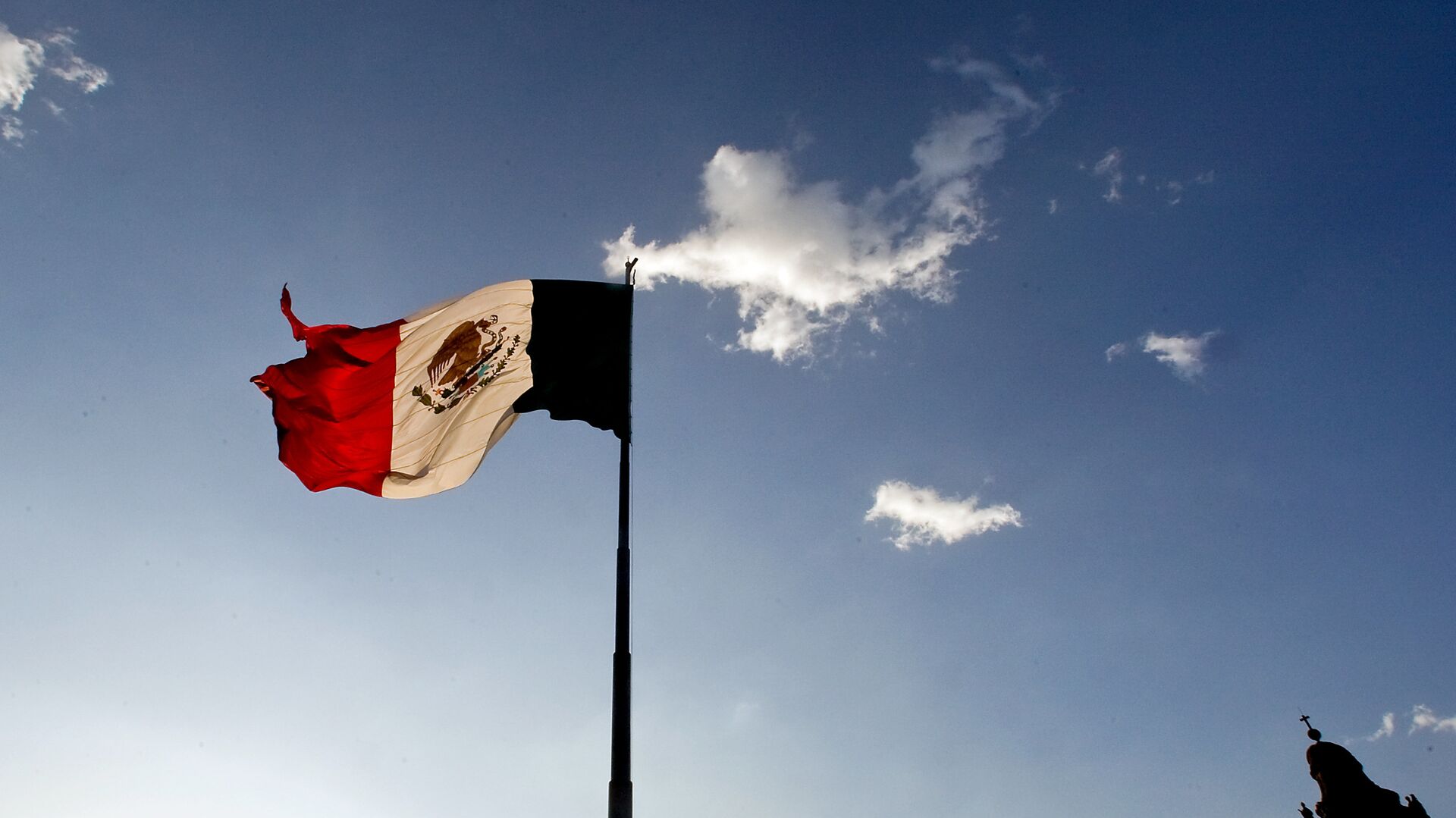https://sputnikglobe.com/20230325/mexicos-supreme-court-implements-freeze-on-electoral-reform-effort-amid-legal-challenge-1108772305.html
Mexico's Supreme Court Implements Freeze on Electoral Reform Effort Amid Legal Challenge
Mexico's Supreme Court Implements Freeze on Electoral Reform Effort Amid Legal Challenge
Sputnik International
Mexico's Supreme Court has accepted the National Electoral Institute's (INE) claim on the unconstitutional nature of the presidential electoral reform and stopped all new provisions in related laws.
2023-03-25T03:36+0000
2023-03-25T03:36+0000
2023-03-25T03:34+0000
americas
mexico
electoral law
supreme court
suspension
https://cdn1.img.sputnikglobe.com/img/103748/62/1037486266_0:0:3396:1910_1920x0_80_0_0_7b25c05a5b55609f2b93d94c34d29a15.jpg
"The Investigating Minister granted the suspension requested by the INE with respect to all the challenged articles of the Decree so that things remain in the state in which they are today and the provisions in force before the respective reform apply," the highest court said in a Friday statement. The supreme court emphasized that defendants in the lawsuit - the Mexican Congress and the federal executive - must submit their response to the INE lawsuit within the statutory period. According to the high court, this case concerns "a possible violation of the political and electoral rights of citizens." Mexican President Andres Manuel Lopez Obrador has repeatedly said that the current electoral system in the country is conducive to voter fraud, which he claimed took place in 2006 during his unsuccessful first run for presidency. The opposition has, in turn, said that the electoral reform violates the constitution and might threaten the holding of the presidential election in 2024.
americas
mexico
Sputnik International
feedback@sputniknews.com
+74956456601
MIA „Rossiya Segodnya“
2023
Sputnik International
feedback@sputniknews.com
+74956456601
MIA „Rossiya Segodnya“
News
en_EN
Sputnik International
feedback@sputniknews.com
+74956456601
MIA „Rossiya Segodnya“
Sputnik International
feedback@sputniknews.com
+74956456601
MIA „Rossiya Segodnya“
supreme court, mexico, electoral law reforms, national electoral institute
supreme court, mexico, electoral law reforms, national electoral institute
Mexico's Supreme Court Implements Freeze on Electoral Reform Effort Amid Legal Challenge
MEXICO CITY (Sputnik) - Mexico's Supreme Court has accepted the National Electoral Institute's (INE) claim on the unconstitutional nature of the presidential electoral reform and stopped all new provisions in related laws.
"The Investigating Minister granted the suspension requested by the INE with respect to all the challenged articles of the Decree so that things remain in the state in which they are today and the provisions in force before the respective reform apply," the highest court said in a Friday statement.
The supreme court emphasized that defendants in the lawsuit - the Mexican Congress and the federal executive - must submit their response to the INE lawsuit within the statutory period.
According to the high court, this case concerns "a possible violation of the political and electoral rights of citizens."
At the end of February, the Mexican Senate approved controversial amendments to the electoral legislation that limit INE’s powers and budget. The National Electoral Institute is a public agency responsible for organizing federal elections in Mexico. The INE warned that the amendments, which stipulate reducing the institute's staff, could lead to the downsizing of its personnel by 80%.
Mexican President Andres Manuel Lopez Obrador has repeatedly said that the current electoral system in the country is conducive to voter fraud, which he claimed took place in 2006 during his unsuccessful first run for presidency. The opposition has, in turn, said that the electoral reform violates the constitution and might threaten the holding of the presidential election in 2024.


